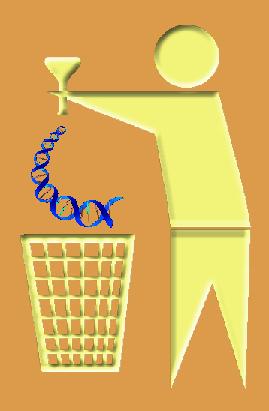 Evolution
Evolution
 Life Sciences
Life Sciences
Did Darwinism Hinder Research Into Understanding Cancer and Diabetes ?
 It’s beyond dispute that the false “junk”-DNA mindset was born, bred, and sustained long beyond its reasonable lifetime by the neo-Darwinian paradigm. As one example in Scientific American explained back in 2003, “the introns within genes and the long stretches of intergenic DNA between genes … ‘were immediately assumed to be evolutionary junk.'” But once it was discovered that introns play vital cellular roles regulating gene production within the cell, John S. Mattick, director of the Institute for Molecular Bioscience at the University of Queensland in Brisbane, Australia, was quoted saying the failure to recognize function for introns might have been “one of the biggest mistakes in the history of molecular biology.”
It’s beyond dispute that the false “junk”-DNA mindset was born, bred, and sustained long beyond its reasonable lifetime by the neo-Darwinian paradigm. As one example in Scientific American explained back in 2003, “the introns within genes and the long stretches of intergenic DNA between genes … ‘were immediately assumed to be evolutionary junk.'” But once it was discovered that introns play vital cellular roles regulating gene production within the cell, John S. Mattick, director of the Institute for Molecular Bioscience at the University of Queensland in Brisbane, Australia, was quoted saying the failure to recognize function for introns might have been “one of the biggest mistakes in the history of molecular biology.”
Now it’s turning out that this “mistake” of ignoring function for junk-DNA may have also hindered discovery of the causes of colon cancer. A news article from Science reports: “Three independent groups have hit on the first common genetic variant that appears to raise the risk of colorectal cancer, albeit by a small amount, and which they estimate is found in half the world’s population. Although rare genes have been linked to the disease before, this is the first evidence of common DNA–and also notable because it falls outside a gene, in so-called ‘junk DNA.'” The Washington Post also reported that causes of Type II diabetes may be linked to malfunctions in non-coding “junk” DNA. How much earlier might these non-coding “junk” DNA causes of disease have been recognized had scientists operated under an intelligent design paradigm rather than a Neo-Darwinian one?
Update 7/17/07: Wired Magazine‘s blog network is now reporting that “junk”-DNA’s regulatory function may be the key to improving the techniques used to treat diseases in gene therapy: “[T]he findings could explain why gene therapy that transfers genes but not junk DNA hasn’t fulfilled its promise, and [one scientist] illustrated it thusly: ‘And we know what happens when a foreman doesn’t turn up on a building site: you get the tea-drinking and wolf-whistling, but not much building.'” Now it seems that Darwinism’s failure to inspire research into function for non-coding “junk” DNA may have also hampered our understanding of how to use gene therapy to treat diseases!
